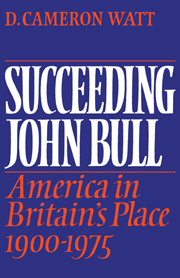Summary
The advent of Winston Churchill to power was to change the direction of British policy completely. But, despite the special pleading advanced by Roosevelt's hagiographers, the actual relationship between the two men was much more tentative at first than Churchill alleged, and was never treated on Roosevelt's side with all the warmth that Churchill did his utmost to infuse into it. Churchill was pre-eminently a patriot whose somewhat romanticised image of Britain included its Empire, the white Dominions and the Navy, and did not, in the long run, exclude non-white membership; though, in the short run, many of his attitudes were distinctly racialist. Throughout his career he had fluctuated between the vision of a permanent association of the principal English-speaking nations and ignored reactions to American economic and imperialist nationalism. Since his exclusion from office after 1929, he had visited America and enhanced the range of his American friendships and contacts. His romanticism was, however, merely the palette from which he painted. He had always a very firm grasp indeed of the realities of politics, power and potentiel de guerre. He was only too well aware both of the strains of Anglophobia and exclusivist American nationalism in American politics and of the relative size and scale of Britain's and America's industrial strength and mobilisable forces. In Roosevelt he saw a fundamentally heroic figure, dominating American politics, capable of rising in vision above the nuts and bolts, the close and detailed bargaining of everyday politics and the minutiae of past grievances.
- Type
- Chapter
- Information
- Succeeding John BullAmerica in Britain's Place 1900-1975, pp. 90 - 110Publisher: Cambridge University PressPrint publication year: 1984

